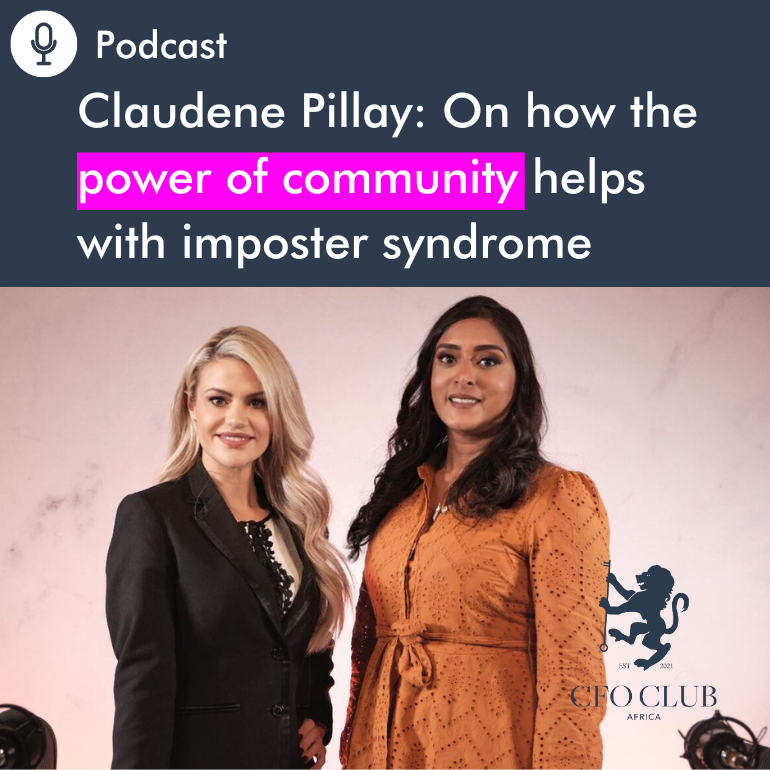Claudene Pillay: On how the power of community helps with imposter syndrome
Written by: Leigh Schaller
“I became a CFO at a very young age. I was in my early thirties, and with that comes many challenges,” Claudene Pillay CFO of The Institute of Risk Management (IRM), told the CFO Club Podcast.
“As a young person going into a leadership role, you suddenly have a huge amount of boardroom exposure. You sit there, and you’re the youngest person at the table.”
Claudene admits that this can be challenging, but has sage advice for overcoming imposter syndrome.
The power of community
On overcoming imposter syndrome Claudene says, “You have to have more confidence in your ability and the way you present yourself, and eventually you start to understand your role and fulfill it with more conviction. But for me, another big part of it is community.
“This is why I love being part of the CFO Club, Africa Community because I have exposure to a network of the most powerful and dynamic finance business leaders in South Africa and the rest of Africa.”
Be kinder to yourself
When asked on the podcast to reflect on what advice she has for her younger self, Claudene suggested having more compassion.
“Be kinder to yourself, I think that’s very important and to have more confidence in your ability. Oftentimes, I would question, ‘Am I doing the right thing? Am I making the right decision?’ So, have more confidence in your decision-making, whether it’s in your personal life or your professional life.
I think for me, what is also important is not getting caught up in the negativity of a difficult moment because those are temporary.”
Why risk management is not just a tickbox exercise
As the CFO of the Institute of Risk Management, Claudene has seen firsthand how business perceptions of risk have changed over the last few turbulent years.
“I think one of the things Covid has taught us is that none of us could have predicted the impact it would have had on our businesses, our relationships, our lives. This has changed the way we perceive risk management because suddenly now risk management is not just a tick box exercise, it’s not just a compliance requirement, it’s something that we need to continuously review as a board.”
“It’s important that we go through the scenarios before they actually materialize, because then when the risk does happen, we’re not placed in a position where we panicked. We understand that we’ve gone through the scenario planning so many times that we’re able to realize the opportunities in that risk and respond effectively to that risk.”

